



Bat Ye'or, a historian, has published groundbreaking works on minorities and "dhimmitude" (their inferior status) under Islam, including Islam and Dhimmitude: Where Civilizations Collide (2002). Her latest book, Eurabia: The Euro-Arab Axis (Fairleigh Dickinson University Press, 2005), argues that European governments, especially the French, have developed foreign policies aimed at winning the favor of Middle Eastern regimes and appeasing the growing militant Islamic minorities in their midst. Bat Ye'or addressed the Middle East Forum in New York on February 7, 2005.
Europe is undergoing two profound changes. The first is the weakening of Christianity. The second is demographic decline. Presently, across Europe, there are only two-thirds the number of children born necessary to sustain the population. The consequent drop in population has mostly been made good by immigration of Muslims. The fast-growing Muslim population is generally not integrated into the host societies nor politically acculturated to its norms. To the contrary, radical Islamic movements are gaining in strength among these émigré populations. In addition, European governments, especially the French, have developed foreign policies aimed at winning the favor of Middle Eastern regimes.
The question arises: is this a temporary aberration or is Europe on the road to losing its historic identity? The latter: Europe is rapidly being transformed into "Eurabia," a cultural and political appendage of the Arab/Muslim world that is fundamentally anti-Christian, anti-Semitic, anti-Western and anti-American.
The four-decade political and economic relationship between Europe and the Arab countries of the Middle East, institutionalized in the annual European-Arab Dialogue, has spawned a virulent and hostile amalgam called "Eurabia." It will not simply go away with a change in European Union (EU) policy. Rather, its roots are deeper. Indeed, how the Eurabia issue is handled today will largely determine Europe's future.
The images of Eurabia are manifest in millions of people burning American and Israeli flags during the Iraq war and openly supporting Yasir Arafat, Saddam Hussein, and other brutal dictators. Eurabia is also discernible in the explosion of anti-Semitic activity and a lack of empathy for Jewish rights in various European countries. Increasingly, Jews find themselves under attack, chiefly from Muslim extremists and radicalized youth, and European governments and law enforcement agencies react to these violations of rights only tepidly and only after the sustained pressure of publicity. The Eurabian phenomenon can also be seen in the intimidation into silence of critiques of Islam and Muslim society, epitomized by the slaying in broad daylight of Dutch filmmaker Theo Van Gogh, who had made a documentary on the travails experienced by Muslim women within Muslim societies.
This pernicious merger began with Charles De Gaulle in the 1960s. De Gaulle saw that the power of France diminished with the loss of its colonies and he believed a more unified Europe would restore some French glory. In order to unify Europe, the continent needed to form an international bloc that could rival America. The Arab nations of the Middle East, unparalleled in their oil wealth, seemed to be good partners. Laying the foundation for this relationship, on November 27, 1967, De Gaulle said that French-Arab collaboration would be a fundamental element in French politics. Since then, France has adopted a highly amiable policy toward the Arab world and a hostile attitude toward Israel.
After the Yom Kippur War of 1973, the Arabs states proclaimed their oil boycott against Europe and specifically against countries with close ties to Israel. Only twenty days after the start of the war, the European community of nine countries recognized the rights of the Palestinians to participate in political negotiations and demanded Israel's return to the armistice lines of 1949, thus diverging from UN Security Council Resolution 242, passed in 1967 and still the basis of a negotiated settlement.
Consequently, the Arab boycott of Europe came to an end; and the French and German governments requested Arab leaders to enter into an official dialogue with European leaders to cement a solid relationship. The Arab leaders agreed but on condition that the Europeans had a unified foreign policy in synchrony with the interests of the Arab states.
Elements of this relationship are plenty evident. For example, European leaders see Arab reform running parallel to the resolution of the Israeli-Arab peace process. Again and again, Arab and European leaders exploit impasses in the Arab-Israeli conflict conveniently to delay democratic reforms.
The goal of Eurabia is to bring together the two shores of the Mediterranean with the interests of European society mirroring the interests of the Arab world. There should be a homogenization of culture, politics, and policy between the two shores. As a byproduct, American leaders have to deal with the growing Eurabian political culture instead of the former European body politic.
Unfortunately, most Europeans are not aware of the Eurabia merger. The new hatred found in Europe against America and Israel is commonplace and intertwines with many sectors of society, including the media, the culture, and the economy. Europe now facilitates the jihadist values of the Arab world. This is evident in its reluctance to forthrightly denounce Islamic terrorism and its need to indict America and Israel as the causes of conflict, rather than the victims of Islamic aggression. Mass immigration of Arabs across the Mediterranean to Europe, which was part of the friendship agreement, will only strengthen the Eurabian phenomenon. If Europe continues to respond with appeasement to Islamist terror attacks like that in Madrid in 2004, Eurabia will eventually become the complete European reality.
Americans need to take an assertive role in both combating Eurabia's dangers and preventing a similar merger from occurring within their own country, for this is a danger. For example, American Middle East studies specialists at universities are already predominantly pro-Arab/Islamic in orientation, dismissive of traditional standards of scholarship and not bashful about politicizing formal instruction.
Americans need to embrace their own genuinely pluralist culture. They should not renounce their identity and Judeo-Christian values to appease the current assertive intolerance emanating from the Arab/Muslim world.

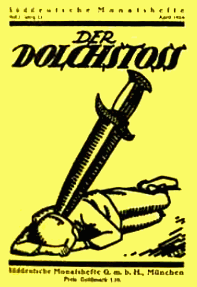 I decided to write this essay after a comment from a journalist, not a Leftist by my country’s standards, who dismissed Eurabia as merely a conspiracy theory, one on a par with The Protocols of the Elders of Zion. I do not disagree with the fact that conspiracy theories exist, nor that they can be dangerous. After all, the Protocols and the Dolchstosslegende, or “stab in the back myth” — the idea that Germany didn’t lose WW1 but was betrayed by Socialists, intellectuals and Jews — helped pave the way for Adolf Hitler and the Nazis before WW2.
I decided to write this essay after a comment from a journalist, not a Leftist by my country’s standards, who dismissed Eurabia as merely a conspiracy theory, one on a par with The Protocols of the Elders of Zion. I do not disagree with the fact that conspiracy theories exist, nor that they can be dangerous. After all, the Protocols and the Dolchstosslegende, or “stab in the back myth” — the idea that Germany didn’t lose WW1 but was betrayed by Socialists, intellectuals and Jews — helped pave the way for Adolf Hitler and the Nazis before WW2.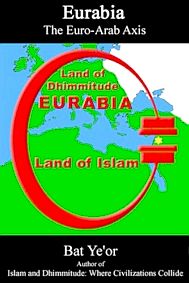 Because of this, I am going to test whether the Eurabia thesis is correct, or at least plausible. I have called this project The Eurabia Code, alluding to author Dan Brown’s massive bestseller The Da Vinci Code. Brown’s fictional account “documents” a conspiracy by the Church to cover up the truth about Jesus. I’m not sure my work will become equally popular, but I’m pretty sure it’s closer to reality. The next time Mr. Brown wants to write about massive conspiracies in Europe, he would be well-advised to set his eyes at Brussels rather than Rome. It would be a whole lot more interesting.
Because of this, I am going to test whether the Eurabia thesis is correct, or at least plausible. I have called this project The Eurabia Code, alluding to author Dan Brown’s massive bestseller The Da Vinci Code. Brown’s fictional account “documents” a conspiracy by the Church to cover up the truth about Jesus. I’m not sure my work will become equally popular, but I’m pretty sure it’s closer to reality. The next time Mr. Brown wants to write about massive conspiracies in Europe, he would be well-advised to set his eyes at Brussels rather than Rome. It would be a whole lot more interesting.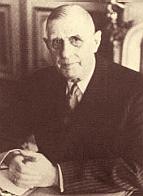 In an interview with Israeli newspaper Haaretz, Bat Ye’or explained how French President Charles de Gaulle, disappointed by the loss of the French colonies in Africa and the Middle East as well as with France’s waning influence in the international arena, decided in the 1960’s to create a strategic alliance with the Arab and Muslim world to compete with the dominance of the United States and the Soviet Union.
In an interview with Israeli newspaper Haaretz, Bat Ye’or explained how French President Charles de Gaulle, disappointed by the loss of the French colonies in Africa and the Middle East as well as with France’s waning influence in the international arena, decided in the 1960’s to create a strategic alliance with the Arab and Muslim world to compete with the dominance of the United States and the Soviet Union.
 The Euro-Arab Dialogue (EAD) is a political, economic and cultural institution designed to ensure perfect cohesion between Europeans and Arabs. Its structure was set up at conferences in Copenhagen (15 December 1973), and Paris (31 July 1974). The principal agent of this policy is the European Parliamentary Association for Euro-Arab Cooperation, founded in 1974. The other principal organs of The Dialogue are the MEDEA Institute and the European Institute of Research on Mediterranean and Euro-Arab Cooperation, created in 1995 with the backing of the European Commission.
The Euro-Arab Dialogue (EAD) is a political, economic and cultural institution designed to ensure perfect cohesion between Europeans and Arabs. Its structure was set up at conferences in Copenhagen (15 December 1973), and Paris (31 July 1974). The principal agent of this policy is the European Parliamentary Association for Euro-Arab Cooperation, founded in 1974. The other principal organs of The Dialogue are the MEDEA Institute and the European Institute of Research on Mediterranean and Euro-Arab Cooperation, created in 1995 with the backing of the European Commission. Eurabia’s driving force, the Parliamentary Association for Euro-Arab Cooperation, was created in Paris in 1974. It now has over six hundred members — from all major European political parties — active in their own national parliaments, as well as in the European parliament. France continues to be the key protagonist of this association.
Eurabia’s driving force, the Parliamentary Association for Euro-Arab Cooperation, was created in Paris in 1974. It now has over six hundred members — from all major European political parties — active in their own national parliaments, as well as in the European parliament. France continues to be the key protagonist of this association.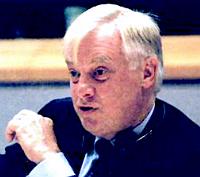 On January 31, 2001, with the recrudescence of Palestinian terrorist jihad, European Foreign Affairs Commissioner Chris Patten declared to the European Parliament that Europe’s foreign policy should give special attention to its southern flank (the Arab countries, in EU jargon), adding that he was delighted by the general agreement to give greater visibility to the Mediterranean Partnership.
On January 31, 2001, with the recrudescence of Palestinian terrorist jihad, European Foreign Affairs Commissioner Chris Patten declared to the European Parliament that Europe’s foreign policy should give special attention to its southern flank (the Arab countries, in EU jargon), adding that he was delighted by the general agreement to give greater visibility to the Mediterranean Partnership.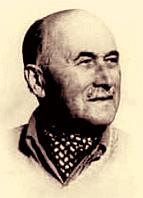 Jean Monnet, French economist never elected to public office, is regarded by many as the architect of European integration. Monnet was a well-connected pragmatist who worked behind the scenes towards the gradual creation of European unity.
Jean Monnet, French economist never elected to public office, is regarded by many as the architect of European integration. Monnet was a well-connected pragmatist who worked behind the scenes towards the gradual creation of European unity.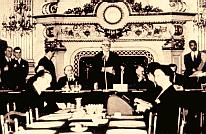 The Schuman Declaration of 9 May 1950, widely presented as the beginning of the efforts towards a European Union and commemorated in “Europe Day,” contains phrases which state that it is “a first step in the federation of Europe”, and that “this proposal will lead to the realization of the first concrete foundation of a European federation.” However, as critics of the EU have noted, these political objectives are usually omitted when the Declaration is referred to, and most people are unaware of their existence.
The Schuman Declaration of 9 May 1950, widely presented as the beginning of the efforts towards a European Union and commemorated in “Europe Day,” contains phrases which state that it is “a first step in the federation of Europe”, and that “this proposal will lead to the realization of the first concrete foundation of a European federation.” However, as critics of the EU have noted, these political objectives are usually omitted when the Declaration is referred to, and most people are unaware of their existence.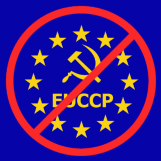 Booker and North call the European Union “a slow-motion coup d’état: the most spectacular coup d’état in history,” designed to gradually and carefully sideline the democratic process and subdue the older nation states of Europe without saying so publicly.
Booker and North call the European Union “a slow-motion coup d’état: the most spectacular coup d’état in history,” designed to gradually and carefully sideline the democratic process and subdue the older nation states of Europe without saying so publicly.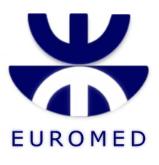 The Barcelona declaration from 1995 encouraged “contacts between parliamentarians” and invited the European Parliament, with other Parliaments, to launch “the Euro-Mediterranean parliamentary dialogue.” In March 2004, this was converted into a specific institution called The Euro-Mediterranean Parliamentary Assembly, EMPA (pdf). During the Euro-Mediterranean Ministerial Conference in Crete in May 2003, the Ministers included a provision which envisaged the consultative role the Parliamentary Assembly will play within the framework of the Barcelona process.
The Barcelona declaration from 1995 encouraged “contacts between parliamentarians” and invited the European Parliament, with other Parliaments, to launch “the Euro-Mediterranean parliamentary dialogue.” In March 2004, this was converted into a specific institution called The Euro-Mediterranean Parliamentary Assembly, EMPA (pdf). During the Euro-Mediterranean Ministerial Conference in Crete in May 2003, the Ministers included a provision which envisaged the consultative role the Parliamentary Assembly will play within the framework of the Barcelona process.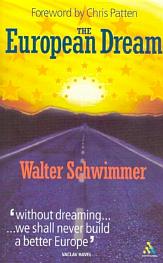 Walter Schwimmer, the Austrian diplomat and Secretary General of the Council of Europe from 1999 to 2004, told foreign ministers at the Islamic conference in Istanbul (June15th 2004) that the Islamic component is an integral part of Europe’s diversity. He reaffirmed the commitment of the Council of Europe to work against Islamophobia, anti-Semitism and other forms of intolerance.
Walter Schwimmer, the Austrian diplomat and Secretary General of the Council of Europe from 1999 to 2004, told foreign ministers at the Islamic conference in Istanbul (June15th 2004) that the Islamic component is an integral part of Europe’s diversity. He reaffirmed the commitment of the Council of Europe to work against Islamophobia, anti-Semitism and other forms of intolerance.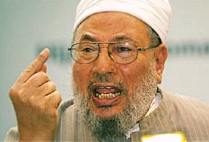 Included among this group of Muslim Brotherhood intellectuals is Youssef al-Qaradhawi, an Egyptian-born, Qatar-based Islamist cleric. Both Sylvain Besson and Scott Burgess provide extensive comparisons between Qaradhawi’s publication, Priorities of the Islamic Movement in the Coming Phase, published in 1990, and The Project. They note the striking similarities in the language used and the plans and methods both documents advocate.
Included among this group of Muslim Brotherhood intellectuals is Youssef al-Qaradhawi, an Egyptian-born, Qatar-based Islamist cleric. Both Sylvain Besson and Scott Burgess provide extensive comparisons between Qaradhawi’s publication, Priorities of the Islamic Movement in the Coming Phase, published in 1990, and The Project. They note the striking similarities in the language used and the plans and methods both documents advocate. Douglas Farah writes about the largely successful efforts by Islamic groups in the West to buy large amounts of real estate, territory that effectively becomes “Muslim” land once it is in the hands of Islamist groups. Some groups are signing agreements to guarantee that they will only sell the land to other Muslims.
Douglas Farah writes about the largely successful efforts by Islamic groups in the West to buy large amounts of real estate, territory that effectively becomes “Muslim” land once it is in the hands of Islamist groups. Some groups are signing agreements to guarantee that they will only sell the land to other Muslims. Vladimir Bukovsky is a former Soviet dissident, author and human rights activist who spent a total of twelve years in Soviet prisons. Now living in England, he warns against some of the same anti-democratic impulses in the West, especially in the EU, which he views as an heir to the Soviet Union. In 2002, he joined in on protests against the BBC’s compulsory TV licence. “The British people are being forced to pay money to a corporation which suppresses free speech — publicising views they don’t necessarily agree with.” He has blasted the BBC for their “bias and propaganda,” especially in stories related to the EU or the Middle East.
Vladimir Bukovsky is a former Soviet dissident, author and human rights activist who spent a total of twelve years in Soviet prisons. Now living in England, he warns against some of the same anti-democratic impulses in the West, especially in the EU, which he views as an heir to the Soviet Union. In 2002, he joined in on protests against the BBC’s compulsory TV licence. “The British people are being forced to pay money to a corporation which suppresses free speech — publicising views they don’t necessarily agree with.” He has blasted the BBC for their “bias and propaganda,” especially in stories related to the EU or the Middle East.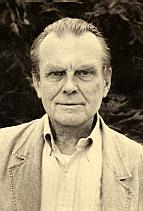 She quotes follow writer from Poland Czesław Miłosz, who won the Nobel Prize in Literature in 1980 for books such as The Captive Mind, where he explained the seductiveness of totalitarian ideology.
She quotes follow writer from Poland Czesław Miłosz, who won the Nobel Prize in Literature in 1980 for books such as The Captive Mind, where he explained the seductiveness of totalitarian ideology.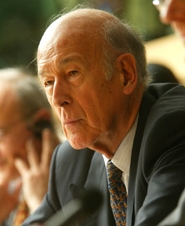 In 1992, Bukovksy had unprecedented access to Politburo and other Soviet secret documents, as described in his book, Judgement in Moscow. In January 1989, during a meeting between Soviet leader Gorbachev, former Japanese Prime Minister Nakasone, former French President Valéry Giscard d’Estaing, American banker Rockefeller and former US Secretary of State Henry Kissinger, Giscard d’Estaing supposedly stated: “Europe is going to be a federal state and you have to prepare yourself for that. You have to work out with us, and the European leaders, how you would react to that.”
In 1992, Bukovksy had unprecedented access to Politburo and other Soviet secret documents, as described in his book, Judgement in Moscow. In January 1989, during a meeting between Soviet leader Gorbachev, former Japanese Prime Minister Nakasone, former French President Valéry Giscard d’Estaing, American banker Rockefeller and former US Secretary of State Henry Kissinger, Giscard d’Estaing supposedly stated: “Europe is going to be a federal state and you have to prepare yourself for that. You have to work out with us, and the European leaders, how you would react to that.” In May 2006, Mahmoud Abbas — President of the Palestinian Authority after Arafat’s death in November 2004 and a leading politician in Fatah — talked to the European Parliament about the peace process. At the same time, the al-Aksa Martyrs Brigades, the armed wing of Fatah, threatened to strike at US and European economic and civilian interests in response to international sanctions on the PA. Financial support evokes no gratitude in the Palestinians. However, they will threaten you with violence if aid is not forthcoming. This is plainly extortion.
In May 2006, Mahmoud Abbas — President of the Palestinian Authority after Arafat’s death in November 2004 and a leading politician in Fatah — talked to the European Parliament about the peace process. At the same time, the al-Aksa Martyrs Brigades, the armed wing of Fatah, threatened to strike at US and European economic and civilian interests in response to international sanctions on the PA. Financial support evokes no gratitude in the Palestinians. However, they will threaten you with violence if aid is not forthcoming. This is plainly extortion. Caesar’s successor Octavian, better known today as Caesar Augustus, is considered both the first and one of the most important Roman Emperors. He downplayed his own position by preferring the title princeps, usually translated as “first citizen”. He also preserved the outward form of the Roman Republic, paid lip service to the old elite, and veiled the changes to make them seem less upsetting to the public. He may have been a monarch, but he never called himself one.
Caesar’s successor Octavian, better known today as Caesar Augustus, is considered both the first and one of the most important Roman Emperors. He downplayed his own position by preferring the title princeps, usually translated as “first citizen”. He also preserved the outward form of the Roman Republic, paid lip service to the old elite, and veiled the changes to make them seem less upsetting to the public. He may have been a monarch, but he never called himself one. The problem is that the nation state itself has been declared evil or obsolete, not collectivism, anti-individualism or totalitarianism. But there is a crucial distinction between nationalism and patriotism, which George Orwell saw clearly:
The problem is that the nation state itself has been declared evil or obsolete, not collectivism, anti-individualism or totalitarianism. But there is a crucial distinction between nationalism and patriotism, which George Orwell saw clearly: